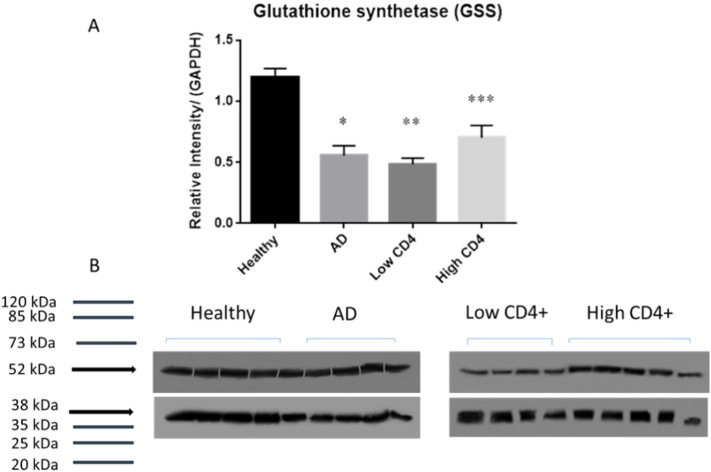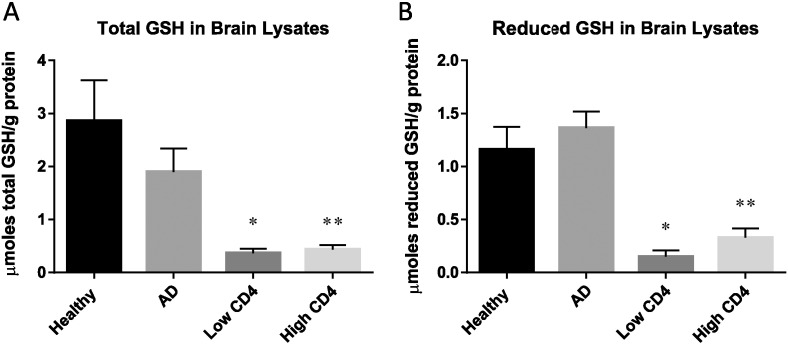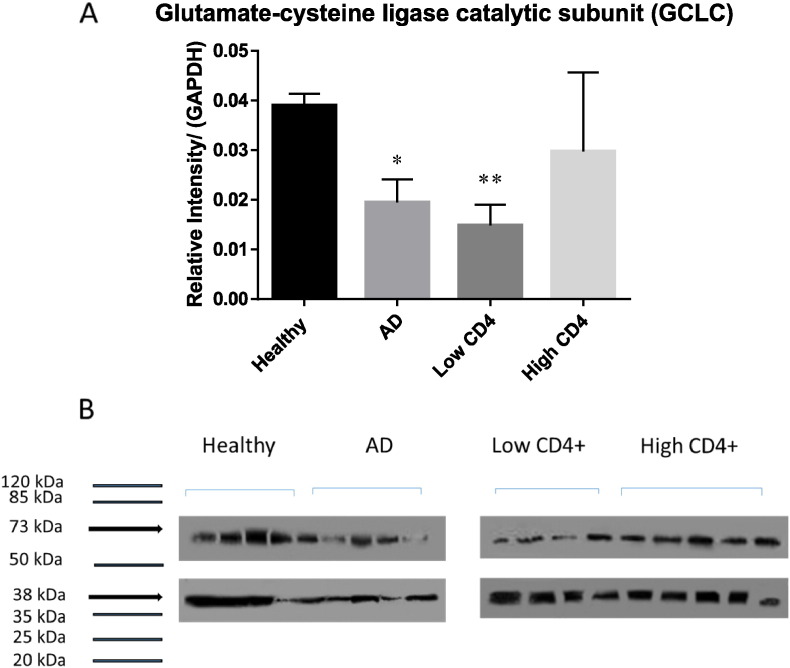Analysis of glutathione levels in the brain tissue samples from HIV-1-positive individuals and subject with Alzheimer's disease and its implication in the pathophysiology of the disease process
Abstract
HIV-1 positive individuals are at high risk for susceptibility to both pulmonary tuberculosis (TB) and extra-pulmonary TB, including TB meningitis (TBM) which is an extreme form of TB. The goals of this study are to determine the mechanisms responsible for compromised levels of glutathione (GSH) in the brain tissue samples derived from HIV-1-infected individuals and individuals with Alzheimer's disease (AD), investigate the possible underlying mechanisms responsible for GSH deficiency in these pathological conditions, and establish a link between GSH levels and pathophysiology of the disease processes. We demonstrated in the autopsied human brain tissues that the levels of total and reduced forms of GSH were significantly compromised in HIV-1 infected individuals compared to in healthy subjects and individuals with AD. Brain tissue samples derived from HIV-1-positive individuals had substantially higher levels of free radicals than that derived from healthy and AD individuals. Enzymes that are responsible for the de novo synthesis of GSH such as γ-glutamate cysteine-ligase catalytic subunit (GCLC-rate limiting step enzyme) and glutathione synthetase (GSS-enzyme involved in the second step reaction) were significantly decreased in the brain tissue samples derived from HIV-1-positive individuals with low CD4 + T-cells (< 200 cells/mm3) compared to healthy and AD individuals. Levels of glutathione reductase (GSR) were also decreased in the brain tissue samples derived from HIV-1 infected individuals. Overall, our findings demonstrate causes for GSH deficiency in the brain tissue from HIV-1 infected individuals explaining the possible reasons for increased susceptibility to the most severe form of extra-pulmonary TB, TBM.




 求助内容:
求助内容: 应助结果提醒方式:
应助结果提醒方式:


